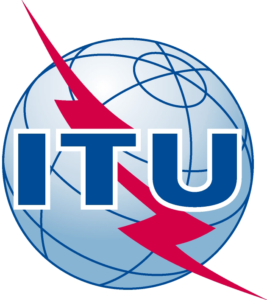On May 17, 2016, representatives from Afghan Wireless were delighted to take part in a special ceremony organized by Afghanistan’s Ministry of Communications and Information Technology (MCIT) in celebration of World Telecommunication and Information Society Day. Attended by state personalities, parliament members, telecommunications CEOs, members of the chamber of commerce, and representatives from the media, the ceremony recognized the important role that telecommunications and information technology have played in Afghanistan’s economic and social development, and called for increased expansion of the sector.
An event celebrated all over the world every year since 1969, World Telecommunication and Information Society Day is an initiative of the International Telecommunication Union (ITU), a specialized agency of the United Nations. Read on for some fascinating facts on this unique agency and its vital contributions to global telecommunications and IT development.
What is the ITU?
 The ITU is the specialized United Nations agency that deals with ICTs: information and communications technologies. With a broad commitment to connecting all the world’s people and protecting and supporting the fundamental right of each individual to communicate, regardless of location or means, the ITU is responsible for allocating global radio spectrum and satellite orbits, establishing the technical standards used to effortlessly interconnect global networks and technologies, and working to facilitate ICT access in underserved communities around the world.
The ITU is the specialized United Nations agency that deals with ICTs: information and communications technologies. With a broad commitment to connecting all the world’s people and protecting and supporting the fundamental right of each individual to communicate, regardless of location or means, the ITU is responsible for allocating global radio spectrum and satellite orbits, establishing the technical standards used to effortlessly interconnect global networks and technologies, and working to facilitate ICT access in underserved communities around the world.
How did the ITU get started?
Although ICTs might seem like a relatively modern development, the ITU has in fact been in existence for more than a century and a half. Sparked by the development of the telegraph service in the mid-1800s, the ITU was founded in Paris in 1865 with the goal of creating a framework to standardize telegraphy operating practices and equipment, so as to overcome the barriers and obstacles that were making international telegraphic communications inefficient. The initial launch of the ITU was followed just a decade later by the patenting of the telephone in 1876; since then, the ITU has remained at the center of advances and innovations in communications, all the way through to today’s world of satellites, smartphones, and the World Wide Web.
What are the ITU’s main areas of activity?
Today, the ITU’s activities are grouped into three main categories:
Radiocommunications—the ITU’s Radiocommunications Sector is responsible for coordinating the extensive and expanding network of radiocommunications services, which include the satellites that enable phone calls, satellite navigation, online maps, and television shows; the space services that monitor and transmit changes in critical global data such as ocean temperatures and greenhouse gas emissions; and the wireless communications that provide users with broadband services and that require carefully allocated radio spectra.
Standardization—referred to as “recommendations,” the standards developed by the ITU are fundamental to the smooth operation of today’s complex ICT networks. Internet access, home networking, phone calls, and voice and video compression all rely on well-planned and coordinated global standards in order to function optimally.
Development—the Telecommunication Development Sector of the ITU is all about creating a great future for global ICTs. This sector helps governments and companies enter or expand their scope of activities in emerging markets; create and implement sound ICT policies; and pursue effective corporate social responsibility—all with the goal of bridging the digital divide and ensuring quality ICT access for everyone.
Who belongs to the ITU?
With public-private partnerships and international cooperation at the heart of its mandate, the ITU enjoys an incredibly diverse membership. One hundred ninety-one countries and close to 800 private-sector entities and academic institutions belong to the ITU, with members hailing from some of the largest manufacturers and telecommunications carriers in the world, ranging from innovative startups experimenting with new and emerging technologies to leading thinkers and researchers from academia and the R&D world. Thanks to the variety of its members, the ITU stands as the world’s premier forum through which different parties can explore and work towards consensus on the critical issues that impact the successful future of the ICT industry.
What is World Telecommunication and Information Society Day?
First celebrated in 1969 (on May 17, the date of the signing of the International Telegraph Convention in 1865 and the anniversary of the founding of the ITU), World Telecommunication and Information Society Day aims to raise awareness of both the role that ICTs can play in helping to grow societies and economies and the need to bridge the digital divide between digitally developed and digitally underserved regions, economies, and individuals. Each year, the day celebrates a specific theme that has particular resonance with the current state of the global ICT industry; in 2016, the theme was ICT Entrepreneurship for Social Impact.

